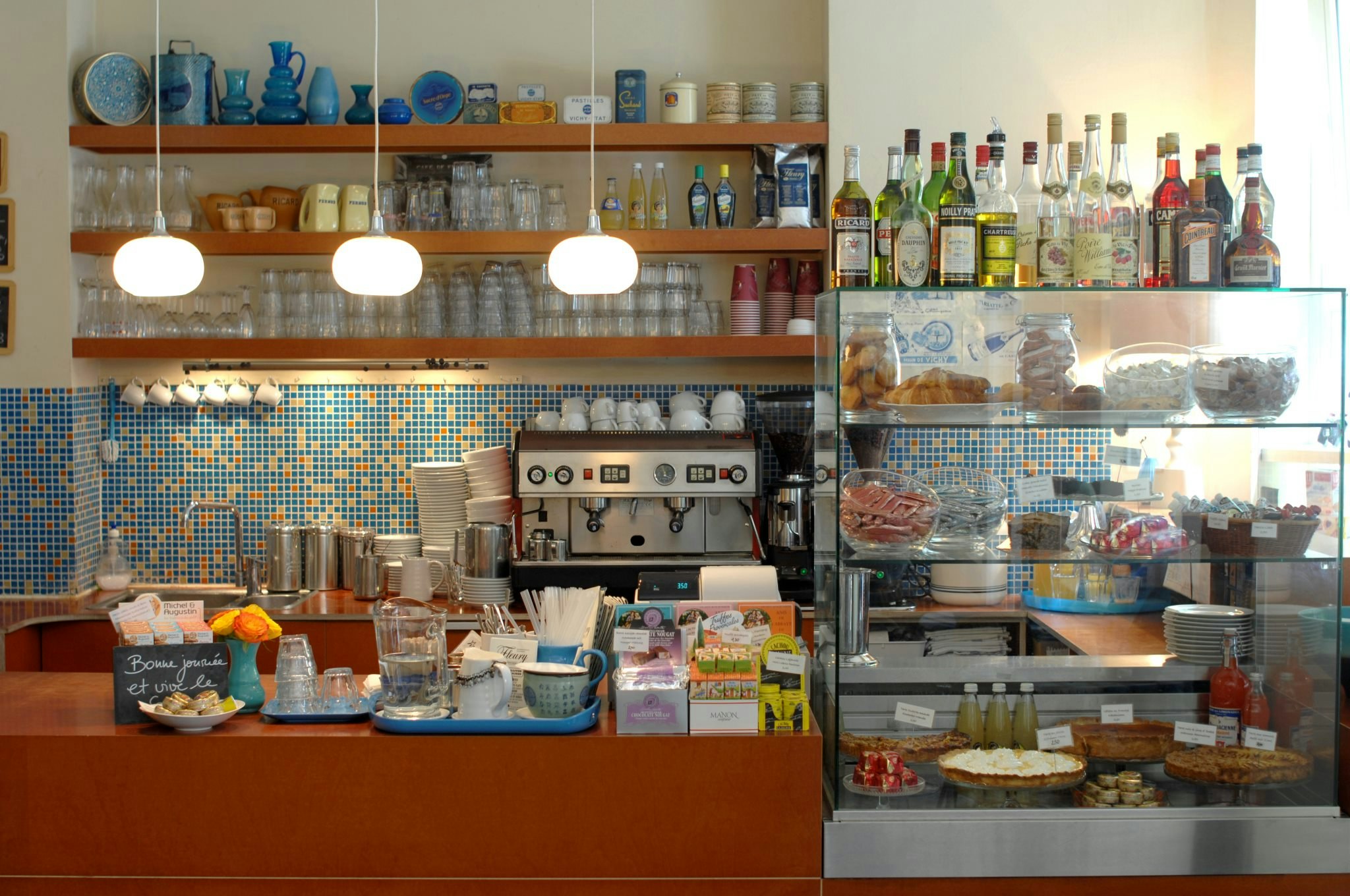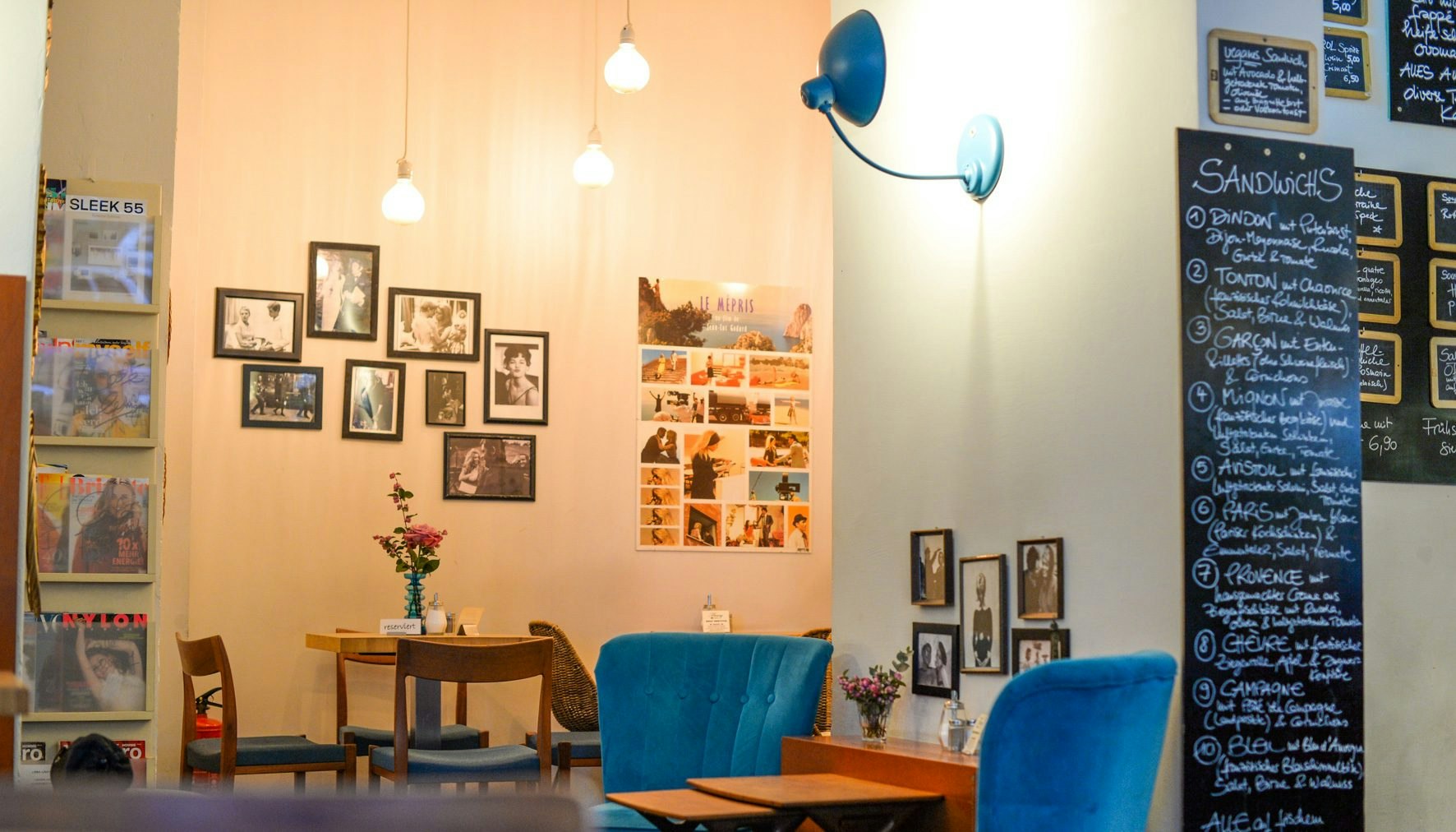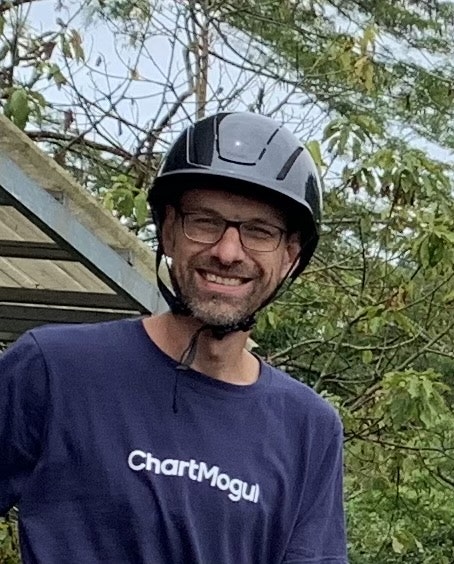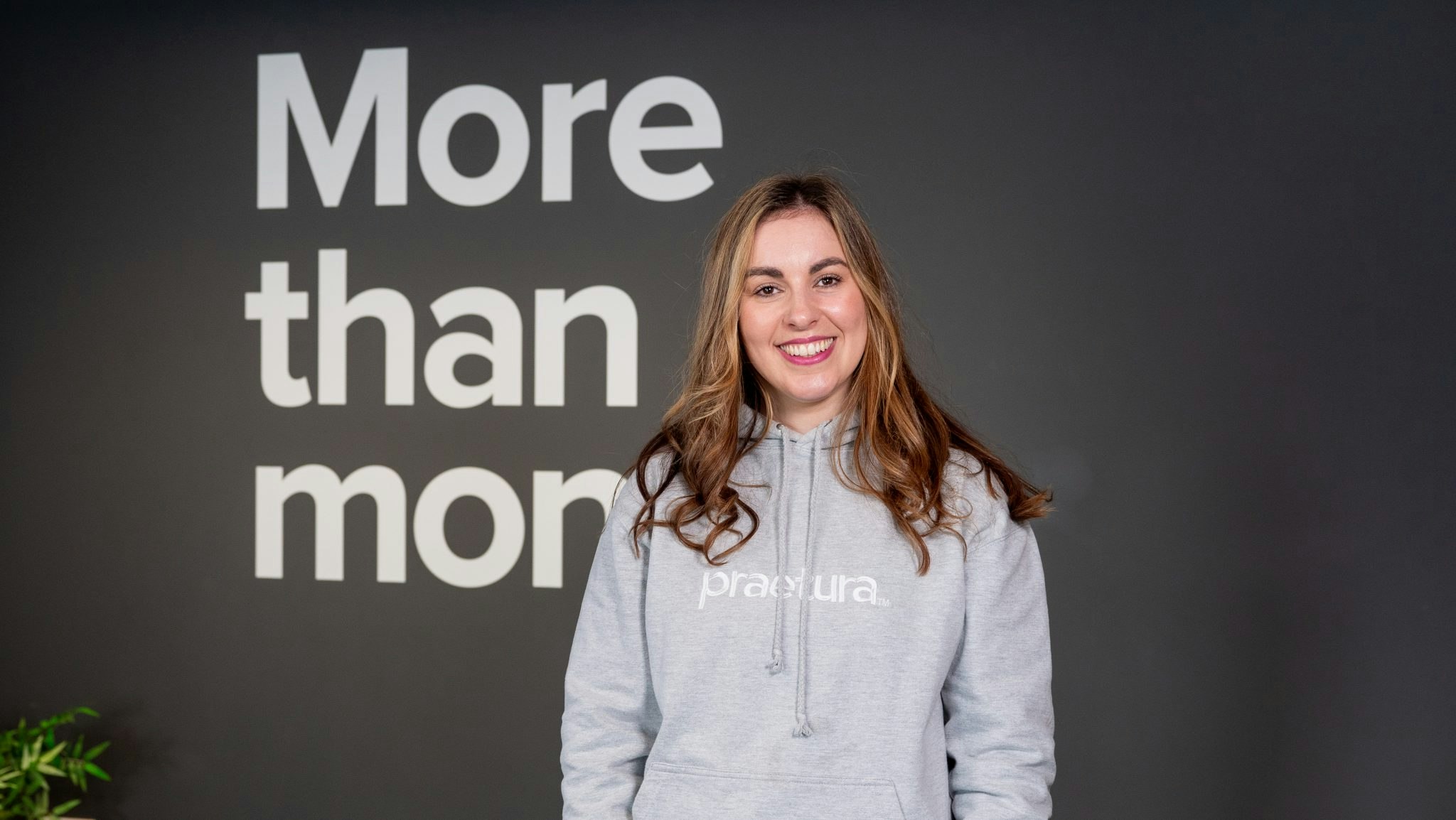Point Nine is a household name in European VC. It’s one of the continent’s top-performing seed investors, and one of its most active; it’s backed 167 companies to date (including 13 unicorns and several of Europe’s greatest success stories, like Revolut and Delivery Hero) and raised six funds.
It also prides itself on being less serious than other VC firms; its fifth fund, pointedly, totalled €99,999,999.99.
Despite all that, its team is notoriously shy of the limelight, rarely appearing onstage at conferences or taking interviews. Perhaps none more so than founding partner Christoph Janz.
Janz, who started Point Nine with partner Pawel Chudzinski in 2011, is on paper the quintessential VC: a serial founder, who started companies rather than going to university and then began investing with the money he made from selling them.
But for someone who is a frequent blogger and prolific tweeter with 42k followers, in person, he comes across as calm and level-headed. We meet at Cafe Fleury, a quaint French eatery in trendy Rosenthaler Platz, Berlin. Point Nine has just moved to the neighbourhood, which is popular with fellow VCs such as HV Capital and Cherry Ventures.

But Janz, who is tall and bespectacled, won’t be spending much time there. He’s planning on moving to San Francisco with his family for a year or so to learn even more about the US market for the sake of his portfolio companies and give his kids a taste of living abroad.
A pre-internet entrepreneur
Before starting his VC career, Janz was one of those things that investors these days highly covet: a serial founder. Though not all of Janz’s businesses were successful, he says, after ordering the house French breakfast and a large cappuccino.
Janz explains he and a friend started his first business, “that wasn’t really a business,” at age 12 in his hometown of Ludwigsburg, near Stuttgart, where he still lives today. It involved buying and selling chunky home computers called Commodore 64s in a garage. But he interrupts himself as he says I'm likely too young to know what he's talking about. (He’s right.)
His next entrepreneurial endeavour — which he embarked on instead of going to university — was a mail-order business for software for Commodore Amigas, a series of PCs. The company, called El Dorado Software, was started by Janz in 1993, in the days before the internet, when software was downloaded on floppy disks and sent via mail. But the business fizzled out a year later when Amiga computers “died”, says Janz.
His first success came in 1997 when he founded his first internet startup. At the time, the burgeoning software industry was becoming ever “more exciting, faster, more international,” says Janz.

The company, DealPilot.com, was an online comparison shopping service for media products, where Janz oversaw product design and management. It raised two rounds of VC funding from German investors, opened an office in New York and exited in 2000 to Shopping.com, a price comparison service owned by eBay. (The exit wasn’t big compared to today’s standards, he says, but it was “meaningful for a 23-year-old.”)
Then, in 2003, he helped start one of Germany’s first social networking sites, Friendity, while living in Barbados.
Janz’s last entrepreneurial feat was in 2005, when he cofounded Pageflakes — an Ajax (asynchronous JavaScript and XML) home page service. Balderton (then Benchmark Europe) led its Series A. It was acquired by Los Angeles-based Live Universe three years later, and TechCrunch, which was founded the same year in the US, got the scoop.
“That was not a big, big success to be honest,” admits Janz, adjusting his glasses. “We got some initial momentum, but it was not a big outcome.”
After that, Janz started angel investing, using the proceeds from the DealPilot exit.
One of the first investments he made was in Zendesk — back when Janz admits he “didn’t know anything about B2B SaaS.”
Building Point Nine
Our breakfasts arrive, and I ask Janz how Point Nine — whose investment portfolio includes Docplanner, Algolia and Cargo.one — came to be.
The story starts in 2008, he answers, just as Berlin’s startup ecosystem was taking off.
Germany’s famous company builder Rocket Internet launched in 2007, from which hundreds of startups would be founded. More VC firms were popping up in Berlin too.
Janz, then an angel investor and startup advisor, decided to team up with Chudzinski, who was managing the investment arm of German incubator Team Europe. In 2011, that firm rebranded to Point Nine Capital, which Janz joined as a managing director, and raised a new, second fund in 2013.
Today, Point Nine makes 10-12 investments per year in B2B software companies, mostly at the seed stage. However, there are a few exceptions to the rule, including Revolut, which it backed at seed in 2016. Point Nine still holds 90% of its Revolut shares, Janz says — although he won’t tell me what kind of a return it could make on them.
“It was an unusual investment for us,” says Janz. Revolut was then focused on consumers and had already been invested in by Balderton.
We have our general strategy, what we do 90% of the time, and we keep our eyes, ears and minds open to things that don’t quite fit. And sometimes, those companies end up being the best ones.
“But I guess we have our general strategy, what we do 90% of the time, and we keep our eyes, ears and minds open to things that don’t quite fit,” he adds. “And sometimes, those companies end up being the best ones.”
When Point Nine set up in 2011 at the tail-end of the financial crisis, many people thought investing in European startups just didn’t make sense, says Janz. LPs even questioned whether it was worth investing in European funds, as they thought all the returns were generated in the US and China.
“There’s a saying which I think is quite true: to deliver outsize returns to your investors, you have to do something controversial and a bit crazy, which then happens to work out,” says Janz.
He adds that doing B2B software in Europe was deemed crazy at the time, but it ended up being a good strategy that the fund has tested and refined over the last 15 years.
One of Janz’s most notable deals was his 2017 investment of roughly $1m in US video recording tool Loom, which was acquired by software firm Atlassian for $975m in 2023.
"I guess hunting unicorns from his home in the south of Germany instead of Berlin, London or Paris makes him less hype-cycle prone, which has proven to be a recipe for success," says Moritz Claussen, cofounder and co-CEO of Cargo.one.
Not an ‘Andreesen-Horowitz style' firm
Janz’s breakfast — an enormous baguette, jam and a croissant — remains fairly untouched, even though we’re half an hour into our chat, as he says he can’t eat and talk at the same time. It’s a fair point, though my empty bowl of granola and Janz’s full plate of pastries makes me feel slightly bad, given I’m the one firing the questions.
We move onto the topic of Point Nine’s (small) team. Its four partners — Janz, Chudzinski, Ricardo Sequerra Amram and Louis Coppey — make all of the investment decisions. Each one receives an equal amount of ‘carry’, the profit made on investments.
Aside from partners, nine other people in the team cover areas such as operations, finance, accounting, legal and compliance as well as portfolio support.
The firm doesn’t plan to grow much over the next few years either, other than perhaps adding “one or two” associates or principals, says Janz.
“I think there are many different ways to build a VC,” says Janz. “We spent a lot of time over the years talking about it, and at some point we decided that we’re not trying to build an Andreessen Horowitz-style firm which is really built to scale — like, you build a machine and basically become a manager.”
“There’s no need to become bigger just for the sake of being bigger,” he adds. “You wouldn’t necessarily become better.”

Having a larger investment team would allow the firm to “see more companies and make more investments” — but Janz says that having four partners doing deals means decisions get made faster. “I think founders appreciate that,” he says.
And it's clear they do. Point Nine’s founders describe Janz as “an extended part” of their teams, says partner Louis Coppey, adding that this was always Janz and Chudzinski’s intention when setting up the firm.
“What makes him such a good investor is that the bar is never high enough, and he always wants to get better," says Coppey. “He has zero complacency.”
It’s clear that Janz is the devoted investor his colleagues say he is — repping Point Nine portfolio companies’ swag is his daily look, I’m told. And the only time Janz does dress up in a shirt is for meetings with LPs.
Moving to the US
For the last 15 minutes of our chat, Janz and I discuss the wonders of ChatGPT, the possibilities of AI, and how technology has both enhanced and damaged societies. But now, he has a train to catch.
He’s heading back to Ludwigsberg — the city of 100k inhabitants that has been his “gravitational centre” for most of his life — but not for too long.
He and his family are moving to San Francisco this year for six to twelve months — for both personal and professional reasons.
For one thing, Janz thinks it’ll be good for his children to live in another country and “see other things,” he says.
And from a fund perspective, the US is still a necessary market to stay close to: it’s the biggest market for tech and has “by far, the largest concentration of people with experience,” says Janz.
He adds that European companies don’t need to move to the US simply to raise capital anymore, however, which used to be the case 10 years ago.
“Fortunately that has really changed since 2008 when Zendesk wasn’t able to raise a Series A in Europe… and had to move to the US,” he says. “I think there are many US investors that are happy to invest here and you have more [large] European funds as well.”
Many of Point Nine’s portfolio companies start in Europe, and then eventually move stateside to tap into the network and talent pool, so it’s crucial that the partners “keep getting better” at helping them set up shop there, says Janz. (He adds that Point Nine has made a handful of US investments in the past, such as Loom, but these have been “more opportunistic than systematic.”)
And while the US is exciting, energising and “a great place to learn”, Janz “isn’t sure” whether Point Nine would eventually open an office in the US and “have half of its partners there like Index did” — at least that’s not the plan for now.
Europe’s tech ecosystem has certainly come a long way since Janz started investing in startups in the region — but like many investors, he’d love to see Europe spawn its own Google.
“[Ensuring] companies stay and scale in Europe should be a huge priority for policymakers, because we really need these giants,” he says. “I hope at some point we will have companies as big as Amazon or Meta in Europe.”
Perhaps after his latest trip to the US, he’ll have even more of an idea of exactly how to do that.


